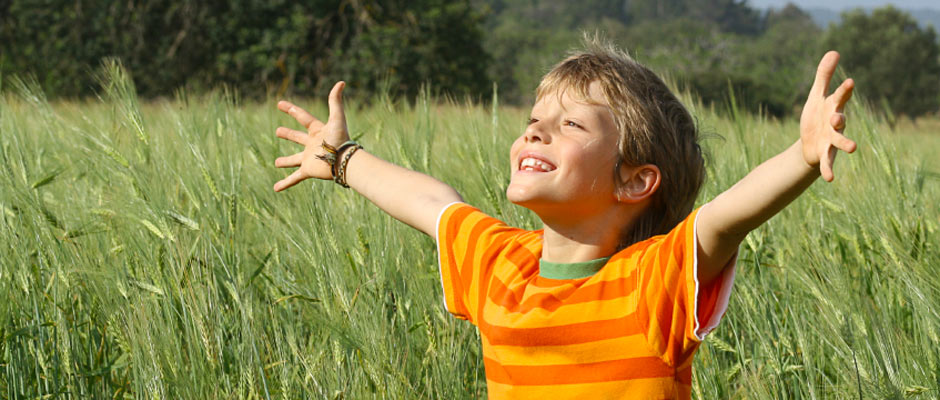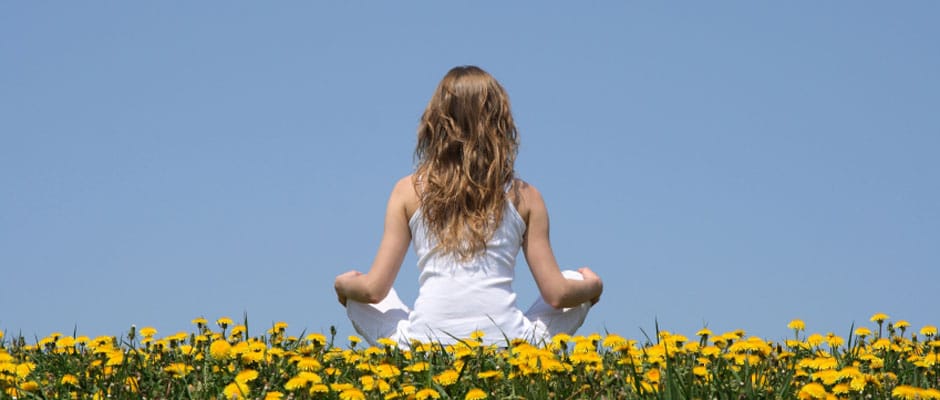The Case for Mindfulness in the Workplace
Increase Resilience at Work – Reach your Potential
Mindfulness training in the Workplace has become the latest tool to hit the corporate world in search of ever more innovative methods to create the ultimate efficient and creative workforce. There is no doubt from the research and from anecdotal evidence that mindfulness techniques lead to a happier more engaged workforce, and it makes absolute sense to take care of the people who are your organisation’s most creative force.
Mindfulness courses now form a main part of Continuing Professional Development (Google, MPs in Parliament, The Royal Marines,) as research continues to demonstrate how learning mindfulness techniques can help reduce stress and improve interpersonal relationships, whilst also enhancing decision-making capability, creativity and emotional intelligence. Mindfulness practice helps release potential that has been diminished by over-busyness, stress and fatigue, but perhaps also efficacy that has been compromised through conflicting communication styles, relationships across vertical and horizontal hierarchies.
“Hell” (Stress) is other people”, – a well known expression which in my experience, both at home and at work, can be very true. Harmonious relationships, created via skilful communication skills and high levels of emotional intelligence are sometimes innate, but frequently need to be learned in high stakes business. These innate skills are often the first to desert us when the going gets tough while at their most valuable.
Mindfulness in the Workplace programmes are simple yet powerful practices that anyone can incorporate into daily life to help break the cycle of stress and its destructive effects on our ability to reach not only our own potential as an individual, with a sense of real pride in our contribution to the whole, but of the group’s potential to work toward common goals and achieve together.
Mindfulness in the workplace therefore implies working at many levels within and across teams and with individuals from different levels of hierarchy, often leading to benefits in personal, relational and social practices. Such practices include a raised awareness of self and of others which often usually then leads to raised levels of understanding of your own needs which are not necessarily exclusive to the needs of those crucial customers and colleagues on whom we rely to do business effectively.
The traditional Mindfulness Based Stress Reduction Courses as conceived by Jon Kabat-Zinn and for which I have been highly trained, can be adapted to suit the time restrictions of most corporate CPD programmes and is slightly shorter than the usual MBSR courses, and therefore can be incorporated into a 1 or 1.5 hour slot within the working week, or indeed modified to suit from a menu of choices which reflect institutional needs. These could be short half or one day introductory workshops, to 6 week in-house courses or the full 8 week MBSR. Week long intensives are also available for a smaller number of participants, perhaps from across leadership teams.
Costs for bespoke courses/workshops vary considerably depending on participants, location, style and I would therefore ask you to contact me to discuss your requirements and to intended outcomes.
New Course
Finding peace in a frantic world
Auberge Lion D’Or
St Antonin Noble Val
Running Wednesdays 3rd to 24th April 1:30-3:30pm
Mindfulness Self Compassion
Mindfulness Self Compassion (MSC) is a new empirically supported 8 week programme designed to cultivate the skill of self compassion. Developed by Chris Germer, PhD, and Kristin Neff, PhD, MSC combines the skills of Mindfulness and Self-compassion to enhance our capacity for emotional wellbeing. Mindfulness is the first step – turning with loving awareness toward difficult experience (thoughts, emotions, physical pain or life events). Self Compassion then follows, bringing loving awareness to ourselves.
Most of us feel compassion when a close friend is struggling. What would it be like to receive the same caring attention from yourself when you needed it most? All that’s required is a shift in attention—recognizing that as a human being, you, too, are a worthy recipient of compassion. Self-compassion involves the capacity to comfort and soothe ourselves, and to motivate ourselves with encouragement, when we suffer, fail, or feel inadequate. Self-compassion is learned in part by connecting with our innate compassion for others, and self-compassion also helps to grow and sustain our compassion for others.
Burgeoning research shows that self-compassion is strongly associated with emotional wellbeing, coping with life challenges, lower levels of anxiety and depression, healthy habits such as diet and exercise, and more satisfying personal relationships. It is an inner strength that enables us to be more fully human—to acknowledge our shortcomings, learn from them, and make necessary changes with an attitude of kindness and self-respect. Self-Compassion can be learnt by anyone.
From my Blog

NEW! Short Taster Courses in Mindfulness coming to St Antonin Noble Val
Do you want a deeper connection to your inner world, or relieve suffering from a health condition or life situation,…Read more

Everyday Mindfulness
Practical Steps for bringing mindfulness to work and homelife From Thich Nhat Hanh: 15 practical steps we can take to bring…Read more

Self Compassion as the starting point
Mindful Self Compassion as an antidote to the madness around us Events in our World become more surreal everyday,…Read more
Mindfulness for School Communities
All around the world Mindfulness is an intervention growing in popularity as an ethos for enhancing emotional and mental wellbeing. Initially the focus was directly on developing these skills in children and young people, but it is being increasingly recognised that without staff and indeed parents learning these valuable stress busting and coping strategies that teaching our young people will only have limited sustainability. Karen has a whole school community solution to developing a mindful School

Mindfulness in Schools
Karen trained with Exeter University’s on their academically acclaimed 2 year Post Graduate diploma in Mindfulness Based Approaches.
She will complete her MSc research project next year in a study which aims to examine the extent to which mindfulness techniques will increase achievement in teaching and learning in an FE college.
Her aim is to alleviate stress and thus help teaching staff restore balance in the learning environment.

Mindfulness at Work
What could be more important than cultivating the minds of those human resources in your place of work?
We put great emphasis in our society on what food we choose to put in our bodies and how much. There is much debate on how much exercise we should take for optimal fitness, to maintain youth, live longer.
But how do we feed our minds? Our minds – which affect everything we think, feel, and therefore choose to do.

8 Week MBSR Course
The 8 week course draws on the approaches of both Jon KabatZinn’s Mindfulness Based Stress Reduction and Teasdale et al’s Mindfulness Based Cognitive Therapy.
It is an approach to handling the usual stresses and sometimes more severe life challenges of life by bringing our full awareness to the present moment, thereby enabling more choices.

MBSR Seminars
Seminars are for anyone who feels they may want to take part in an MBSR course but are not sure what the commitment entails.
The 2 hour session will offer an overview of mindfulness and what you can expect from the full 8 week MBSR course.
The cost is just £20 per person.
Course Information
Karen holds a PGDipl in Mindfulness Based Applications from Exeter University and has trained extensively with Oxford University to teach the Finding Peace in a Frantic Programme to teachers in schools as part of the Myriad Research Project, headed by Professor Willem Kuyken.
Karen trained to teach the MSC 8 week programme through Bangor University’s Centre for Mindfulness Research and Practice, and was taught by Kristin Neff herself, who developed the programme as a result of her extensive empirical research – further information is available here:- http://www.centerformsc.org
Please contact Karen for more details on [email protected] or via the contact page
Drop in sessions are available every 3rd Monday in the Month from September at only £10. Sessions will be themed with guided meditations and group discussion.
1:1 mindfulness sessions are available after prior consultation. Bespoke courses for groups at schools for teachers or parents, work places or in the community can also be arranged. Please contact Karen via the enquiry form for further information and to discuss your requirements.
Your Mindfulness Facilitator – Karen Duarte
 It would be fair to say that developing a mindfulness practice has positively transformed my life in just under 5 years. Like many people, I became interested in mindfulness as a way to improve my own mental and emotional health when I returned from abroad, with the intention of starting my life over. As part of a stock-taking and pro-active re-evaluation of my life, I was introduced to mindfulness concepts as a way of helping myself in a way that many existing NHS treatments were unable to do.
It would be fair to say that developing a mindfulness practice has positively transformed my life in just under 5 years. Like many people, I became interested in mindfulness as a way to improve my own mental and emotional health when I returned from abroad, with the intention of starting my life over. As part of a stock-taking and pro-active re-evaluation of my life, I was introduced to mindfulness concepts as a way of helping myself in a way that many existing NHS treatments were unable to do.
I was suffering from reactive depression at the time, and the anti-depressant medication, was not really helpful in dealing with the underlying causes of what was, I suppose, an understandable reaction to difficult life circumstances, which I had desperately tried to avoid addressing in the first year back from abroad.
Through mindfulness practice I decided to be more proactive rather than habitually reactive in how I ricocheted around my life. I took some time out from working as a teacher in mainstream secondary education to assess what was really important to me. Coming to know myself, and by default developing an understanding of our common humanity was, I realized, essential to my wellbeing, – even I would go so far as to say, my sanity.
Deepening my knowledge from what was at first an academic and intellectual curiosity, via the thorough, extensive teaching and experiential guidance of Exeter University’s excellent 2 year diploma programme in Mindfulness Based Approaches, I came to understand myself better with self-compassion, and gain a deeper compassionate understanding of our common humanity.
People come to mindfulness practice from many different perspectives, some of which are rooted in a deep meditative practice over many years, and some like myself from an intuitive need to understand myself and how I may have more autonomy over the runaway mind, which so governs my life at times. It is worth noting however, that while there are excellent mindfulness resources, given the buzzword it has become, these practices cannot be learnt by merely reading a few books. This is a journey of the self to be undertaken with intention, which requires a certain amount of discipline, practice as well as self kindness.
As I have become more aware, less reactive, taking my place calmly in the driving seat of my own life, I have transformed, feeling happier and more content than I ever have been.
I am convinced that walking the path of mindfulness will open up your life in ways you never before believed possible, to live well and love your life. It would be an honour for me to be your guide in that process, and in some small way, as your love of your life grows, so you impact on the world around you – as the pebble dropped in the water ripples out across the lake.
Karen Duarte
